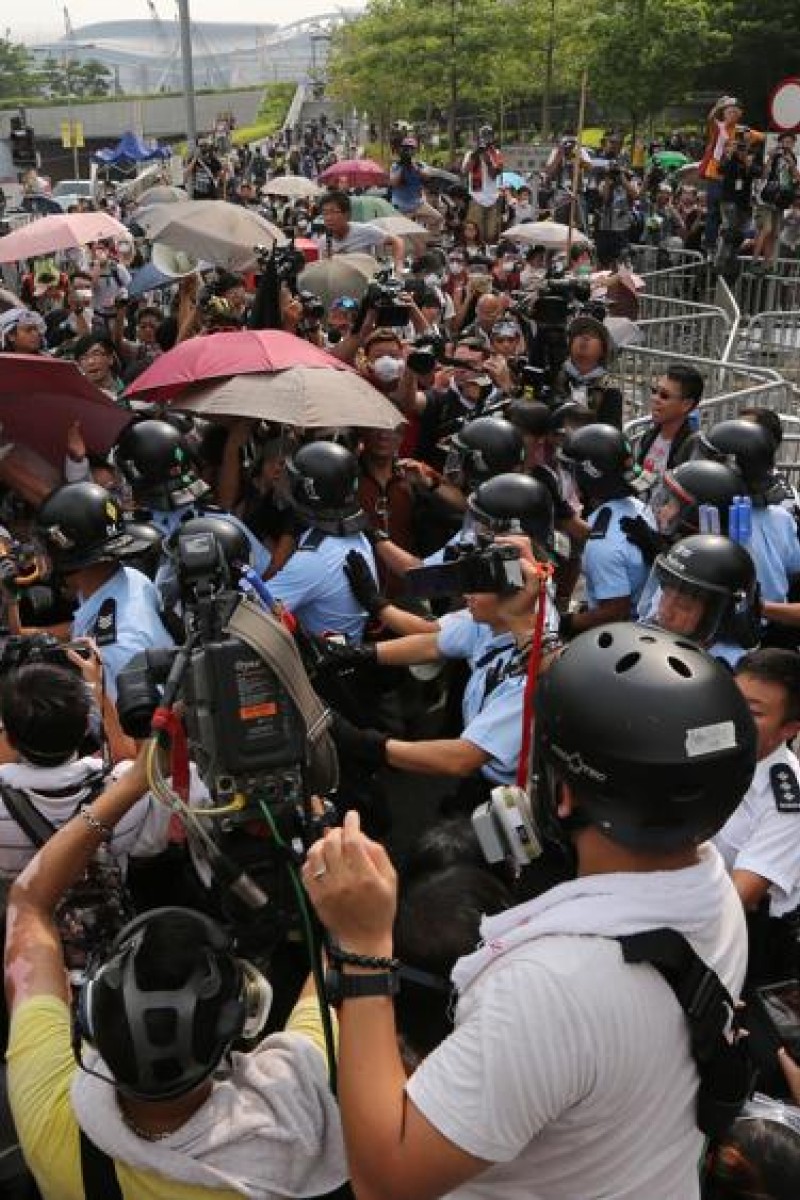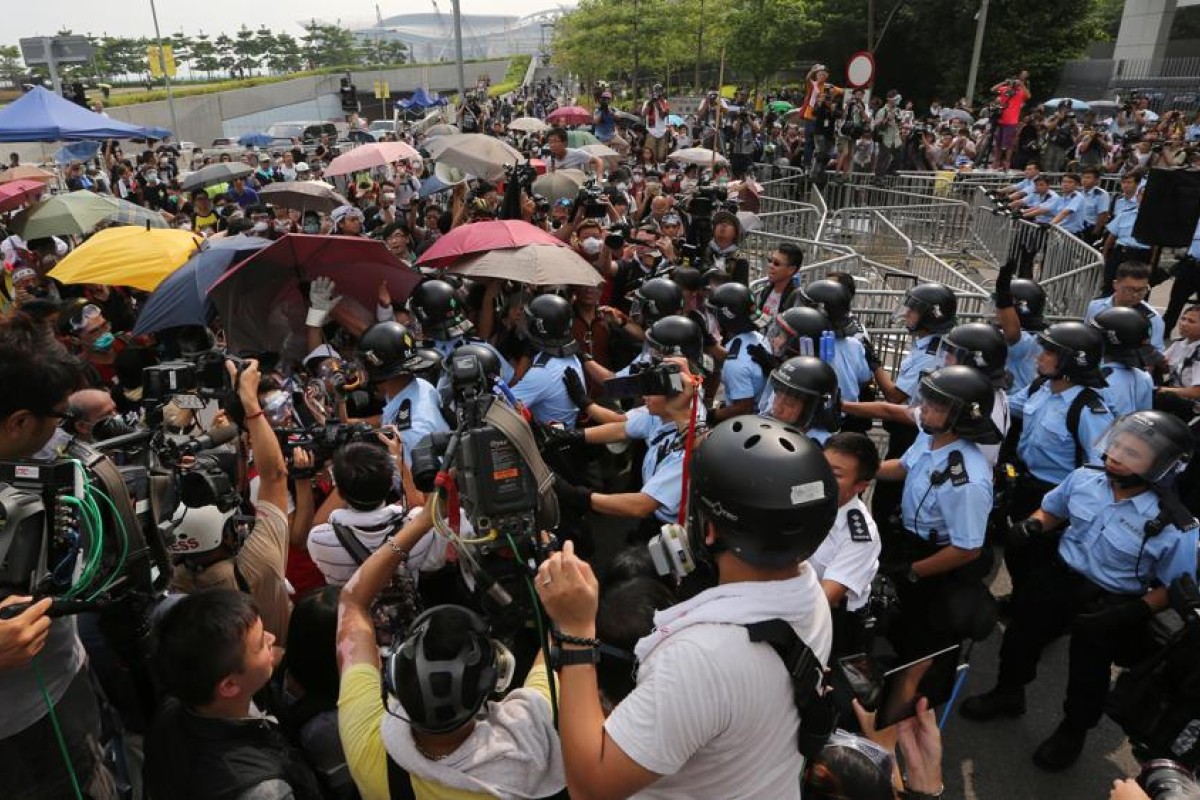
Students and experts weigh in on how far HK has come on World Press Freedom Day
Though much has improved in regards to press freedom, more could still be done in the city
 Protesters gather in Admiralty during "Occupy Central with Love and Peace" (OCLP) movement.
Protesters gather in Admiralty during "Occupy Central with Love and Peace" (OCLP) movement. Tomorrow marks World Press Freedom Day, organised by the United Nations to raise awareness about the importance of a free press, as well as draw attention to the state of the press freedom around the world. To commemorate it, Young Post spoke to students, a journalism expert, and Amnesty International to talk about press freedom in Hong Kong. This comes a few days after the release of this year’s World Press Freedom Index, in which the city has risen three places since last year.
The index ranked Hong Kong 70th out of 180 countries. This year’s ranking is better than last year’s, but the city is still behind neighbouring countries such as South Korea, Japan, and Taiwan. The improved position is due to the government’s official recognition of alternative media outlets such as Hong Kong Free Press, Citizen News, and The Initium last year, according to the Reporters Without Borders website.
However, Hong Kong students believe there is still a culture of censorship, even if it is not official.
“Press freedom in Hong Kong seems to be in a somewhat [tricky] position as of now,” said Ngai Yeung, 16, from International Christian School. She added that, though there aren’t any official regulations as to what can and can’t be said, there are implied consequences for journalists when it comes to standing up against the pro-Beijing camp.
Angelina Wang, 16, from Chinese International School, said that she thinks press freedom is important not just to journalists, but for people in general when it comes to talking about what is going on. “It’s something we should all be aware of and grateful for.”
Amnesty International said it believes there is still more work to be done in terms of press freedom in the city.
“The press’ role is to bring issues in society to everyone for them to know. Media workers need room and freedom to work so they can make sure every issue related to public interest can be reported,” Amnesty’s Hong Kong’s director Mabel Au told Young Post. She added journalists are still being attacked for their work, which affects the media’s ability to report things freely.
Director of the University of Hong Kong’s Journalism and Media Studies Centre (JMSC) and journalist Keith Richburg cautioned against reading too much into the government’s actions, but added that he believes there is some optimism and opening up in Hong Kong’s media ecology.
“It was a long fight to get organisations like Hong Kong Free Press accredited [to be officially recognised], because they were going by these old-fashioned rules that were favouring print press over online press. There are rules, but those rules are based on the old days of TV, radio, and newspapers. It just took them some time to come around and understand that the world is changing.”
He said that the JMSC has, in the past, had trouble accrediting its students to cover news at the Legislative Council, but that it has become easier to get some press passes for students.